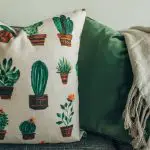Curious about which fabrics can safely be used with food safe superglue? Look no further.
Understanding the compatibility of different fabrics with food safe superglue is crucial for your crafting projects. Whether you're working with cotton, silk, linen, wool, nylon, polyester, denim, or rayon, knowing which fabrics are safe to use with food safe superglue can elevate your creative endeavors.
This guide will provide you with the knowledge you need to confidently and effectively use food safe superglue on various fabrics, ensuring that your projects are not only visually stunning, but also durable and safe.
Let's dive in and explore the world of food safe superglue and fabric compatibility.
Key Takeaways
- Cotton fabric can be safely used with food-safe superglue for repairs and craft projects.
- Silk fabric ensures strong adhesion and a reliable bond when repaired with food-safe superglue.
- Linen fabric forms a strong and secure bond with food-safe superglue, making it suitable for long-term use.
- Wool fabric requires a food-safe superglue that doesn't hinder its breathability and flexibility.
Cotton
You can safely use food-safe superglue on cotton fabric for repairs or craft projects. Cotton bonding with food-safe superglue provides strong fabric adhesion, making it suitable for various applications. When using food-safe superglue on cotton, ensure the fabric is clean and dry before applying the adhesive. Apply a small amount of superglue to one side of the fabric and press the surfaces together firmly for a few seconds to allow the bond to set. This method is effective for repairing torn cotton clothing, fixing seams, or attaching embellishments to cotton fabric.
For craft projects involving cotton fabric, such as creating quilts or fabric-based artworks, food-safe superglue offers a reliable solution for joining pieces together. It provides a quick and durable bond, ensuring that the fabric pieces remain securely attached. Whether you're a seasoned crafter or a beginner, understanding the compatibility of cotton with food-safe superglue can enhance your crafting experience.
With proper application, you can achieve professional-looking results and enjoy the versatility of cotton fabric in your creative endeavors.
Silk
When repairing silk fabric, using food-safe superglue ensures strong adhesion and a reliable bond, offering a quick and durable solution for various applications. Silk is a delicate fabric that requires careful handling, and using a food-safe adhesive can help maintain its integrity while ensuring a secure bond.
Silk Bonding with Food Safe Superglue
- Gentle Adhesion: Food-safe superglue provides gentle adhesion to silk fibers, preventing damage or discoloration to the delicate fabric.
- Quick Drying: The fast-drying nature of food-safe superglue allows for efficient bonding without causing any harm to the silk fabric.
- Non-Toxic Formula: The non-toxic properties of food-safe superglue make it a safe and reliable option for bonding silk, ensuring that it doesn't compromise the fabric's quality.
When working with silk, it's essential to prioritize the fabric's delicate nature while ensuring a strong and durable bond. Using a food-safe adhesive for silk bonding can provide the peace of mind that your repair will be secure without causing any harm to the fabric.
Linen
Transitioning from silk to linen, it is important to consider the compatibility of food-safe superglue with this fabric. Linen is a natural fabric known for its durability and food safety properties, making it a popular choice for various culinary applications. When using food-safe superglue with linen, it's essential to understand how the glue interacts with this fabric to ensure the safety and integrity of the final product.
| Linen Durability | Linen Food Safety Properties | Superglue Compatibility |
|---|---|---|
| Known for its strength and resilience, making it suitable for long-term use. | Naturally resistant to mold and bacteria, providing a hygienic surface for food-related activities. | Food-safe superglue forms a strong and secure bond with linen, ensuring the longevity of the repaired or assembled item. |
Linen's durability makes it a reliable choice for items that require strength and longevity, such as kitchen linens, aprons, or reusable food wraps. Additionally, its natural resistance to mold and bacteria enhances its suitability for food-related uses. When using food-safe superglue with linen, you can trust that the bond will be secure, contributing to the overall safety and durability of the item.
Wool
Moving from linen to wool, it's important to consider how food-safe superglue interacts with this fabric, ensuring a secure and safe bond for various culinary applications. When working with wool and food-safe superglue, there are essential factors to consider to ensure a successful and safe bond.
- Breathability: Wool is a breathable fabric, so it's crucial to ensure that the superglue doesn't hinder this property, especially when used in culinary applications where moisture and air circulation are important.
- Flexibility: Wool is known for its flexibility and stretch, so the superglue used shouldn't compromise these characteristics, especially if the bonded item will undergo bending or folding during use.
- Non-toxicity: Given that wool is commonly used in food-related items such as kitchen textiles and aprons, it's crucial to use a food-safe superglue that's non-toxic and safe for use around food.
When considering wool bonding and superglue safety, it's essential to select a food-safe superglue that respects the unique properties of wool while providing a strong and safe bond for culinary applications.
Nylon
You can safely bond nylon fabric with food-safe superglue for various culinary applications. Nylon is a versatile fabric commonly used in kitchen accessories such as aprons, oven mitts, and pot holders. When these items require repairs, food-safe adhesives are essential to maintain their safety for use around food. Food-safe superglue provides a secure bond for nylon fabric, ensuring that repaired items remain suitable for culinary use.
Nylon bonding with food-safe adhesives is particularly important in kitchen settings where hygiene and food safety are paramount. Whether repairing a torn apron or reattaching a loop on an oven mitt, using a food-safe superglue ensures that the repaired item remains safe for contact with food. The adhesive properties of food-safe superglue make it an ideal choice for nylon bonding, providing a reliable and durable bond that withstands the rigors of kitchen use.
Polyester
When it comes to using food safe superglue with polyester, it's important to consider the safety of the materials involved.
You'll want to know if polyester is compatible with food safe superglue and if the bond is safe for use with food items.
Exploring safe bonding options for polyester and food safe superglue is essential for ensuring the integrity of the materials and the safety of the finished product.
Polyester and Food Safety
When using food-safe superglue, always ensure that polyester fabrics are compatible and safe for direct contact with food. Polyester bonding with food-safe superglue can be safe, but it's essential to consider food safety regulations and potential health implications.
Here's what you need to know:
- Check the food safety regulations: Ensure that the food-safe superglue you're using complies with the relevant regulations for direct contact with food.
- Consider the intended use: Assess whether the bonded polyester fabric will come into direct contact with food, and if so, choose a food-safe superglue specifically designed for this purpose.
- Test for safety: Before using the bonded polyester fabric with food, conduct a small-scale test to ensure that the superglue and polyester combination is safe for its intended application.
Always prioritize safety and compliance when using polyester fabrics with food-safe superglue.
Superglue Compatibility With Polyester
Polyester's compatibility with food-safe superglue requires careful consideration to ensure safety and compliance. When bonding polyester materials, it's crucial to use adhesives specifically formulated as food safe. Regular superglue may contain chemicals that aren't intended for direct contact with food, potentially compromising safety. Look for adhesives that are labeled food safe or FDA approved for indirect food contact. These adhesives are designed to meet strict safety standards and are suitable for use with polyester materials.
When using food-safe superglue with polyester, ensure the surfaces are clean and dry for optimal bonding. Additionally, follow the manufacturer's instructions for application and curing times to achieve the best results. Prioritize safety and compliance by choosing food safe adhesives for polyester materials.
Safe Bonding Options
To ensure safe bonding options for polyester, use adhesives specifically formulated as food safe when working with food-safe superglue. When it comes to bonding polyester with other materials, it's crucial to choose the right adhesive to maintain safety standards, especially when working with items that come into contact with food.
Here are some safe bonding options to consider:
- Metal bonding: When bonding polyester to metal surfaces, look for food-safe adhesives that provide a strong and durable bond without compromising food safety.
- Wood adhesion: For bonding polyester to wood, opt for adhesives that are explicitly labeled as food safe to ensure the safety of the bonded materials, especially when used in food-related applications.
- Other material compatibility: Always check the adhesive's specifications to ensure it's suitable for bonding polyester with other materials in food-safe applications.
Denim
You can safely use food safe superglue with denim, as it provides a strong and durable bond for fabric repairs. Denim fabric, known for its sturdy and rugged nature, pairs exceptionally well with food safe superglue due to its compatibility with various adhesives. When repairing denim garments or crafting denim-based projects, food safe superglue offers a reliable solution for securing seams, reattaching patches, or mending tears.
The glue's compatibility with denim fabric ensures that your repairs withstand the rigors of frequent use and laundering. Food safe superglue creates a lasting bond with denim, effectively addressing frayed edges, loose hems, or detached embellishments. Its quick-drying nature allows for efficient repairs, making it a convenient option for both minor touch-ups and more extensive fabric restoration.
Whether you're a seasoned crafter or a DIY enthusiast, utilizing food safe superglue with denim empowers you to maintain the integrity of your denim items with confidence. In summary, when it comes to denim fabric, food safe superglue stands as a dependable choice for addressing various repair needs. Its compatibility with denim ensures that your fabric repairs aren't only secure but also resistant to the demands of everyday wear.
Rayon
When using food safe superglue, ensure that rayon fabric is compatible for creating strong and durable bonds in fabric repairs. Rayon, a semi-synthetic fabric known for its silk-like appearance, can be effectively bonded using food safe superglue.
Here's what you need to know about rayon bonding:
- Compatibility: Food safe superglue is suitable for bonding rayon fabric. It forms a secure and lasting bond without causing any damage to the delicate fibers of the fabric.
- Application: Apply the food safe superglue sparingly on the edges of the fabric to be bonded. Gently press the surfaces together and hold them firmly to allow the glue to set. Ensure that the fabric is clean and dry before applying the glue for optimal adhesion.
- Considerations: When working with rayon, it's essential to handle the fabric delicately and avoid excessive tension during the bonding process. Additionally, always follow the manufacturer's guidelines for the food safe superglue to achieve the best results.
Frequently Asked Questions
Can Food Safe Superglue Be Used on Fabrics That Are Not Listed in the Article, Such as Leather or Spandex?
Yes, food safe superglue can be used on leather. It's safe and effective for repairing leather goods. However, for spandex, it's best to avoid using superglue, as it may not adhere well and could damage the fabric.
Are There Any Specific Washing or Care Instructions for Fabrics After They Have Been Glued With Food Safe Superglue?
After using food safe superglue on fabrics, follow specific washing instructions and care considerations. Always check the fabric's label for any special care requirements. Avoid harsh chemicals and high heat to ensure the longevity of the bond.
Is Food Safe Superglue Safe to Use on Fabrics That Will Come Into Direct Contact With Food, Such as Napkins or Tablecloths?
Food safe superglue is safe for fabrics that come into direct contact with food, such as napkins or tablecloths. To ensure fabric compatibility, apply the glue sparingly and allow it to fully cure before use.
Can Food Safe Superglue Be Used to Repair Fabrics That Will Be Used for Food-Related Activities, Such as Aprons or Oven Mitts?
Yes, food safe superglue can be used to repair aprons and oven mitts. Ensure fabric safety by checking compatibility with the glue. Follow washing instructions to maintain the bond. Always test a small, inconspicuous area before applying.
Are There Any Safety Concerns or Potential Health Risks Associated With Using Food Safe Superglue on Fabrics?
When using food safe superglue on fabrics, be cautious of potential risks and health concerns. Ensure fabric compatibility and follow washing instructions carefully, especially if the repaired fabric will come into direct contact with food.
- Is Organza More Expensive Than Silk? - April 23, 2024
- What Is Organza Vs Chiffon? - April 23, 2024
- What Kind of Fabric Is Organza? - April 23, 2024






